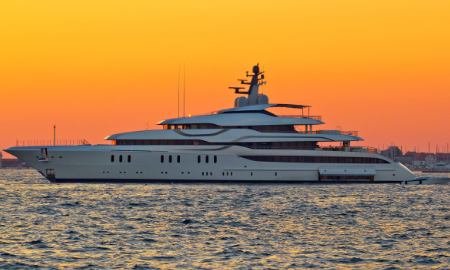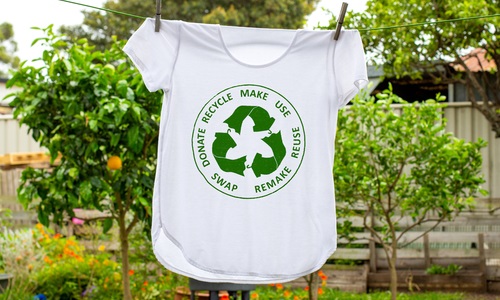Sign up for our free daily newsletter
YOUR PRIVACY - PLEASE READ CAREFULLY DATA PROTECTION STATEMENT
Below we explain how we will communicate with you. We set out how we use your data in our Privacy Policy.
Global City Media, and its associated brands will use the lawful basis of legitimate interests to use
the
contact details you have supplied to contact you regarding our publications, events, training,
reader
research, and other relevant information. We will always give you the option to opt out of our
marketing.
By clicking submit, you confirm that you understand and accept the Terms & Conditions and Privacy Policy
With a growth rate approaching 10%, the $7.9bn global luxury yacht market is projected to reach $16.9bn by 2032, according to international market research company ResearchAndMarkets.com. With growth on the horizon, the legal issues surrounding yacht transactions, ownership and operations were important topics at the Superyacht Law Summit, hosted by the International Yacht Brokers Association at the Palm Beach International Boat Show in March.
The Luxury Law Alliance asked Foster Garvey lawyers Kevin Frisch and Erika Johnson about trends in the industry as well as takeaways from the Summit.
Just so we are on the same page, how does the market define a luxury yacht?
Kevin: “A luxury yacht is a highly sophisticated vessel that combines performance, comfort and style, catering to the tastes of affluent individuals. Ranging from under one hundred feet to several hundred feet in length, these yachts are characterised by elegant design, state-of-the-art technology and remarkable amenities. They are equipped with advanced navigation systems, powerful engines and showcase extraordinary craftsmanship.”
What is fueling growth in the luxury yacht market?
Erika: “Several key factors are propelling the market, including the increasing wealth among affluent individuals, their interest in exclusive leisure activities, a growing emphasis on experiential luxury, the expansion of marine tourism and the advent of luxury charter services.”
Kevin: “Some of the other factors contributing to the growth of the market include the development of advanced docking facilities and extensive investment in research and development for innovative yacht features, technologies and composite materials.”
For those interested in negotiating new build or refit contracts, what are some of the issues?
Kevin: “Owners should pay close attention to milestone payment triggers to avoid unclear requirements that may require them to make a payment based on a single event without appropriate context and clear next steps. For example, a payment measured against the first installation of furniture may require that cash change hands when a couch frame or vanity is installed even though the implied precedents, such as flooring, have not been completed. Likewise, be careful of so-called disappearing benchmarks that may be undone after payment is received such as the delivery or installation of engines. If the owner makes payment once the engines are delivered or installed, what recourse would he or she have if the benchmark is considered achieved, payment is made and the engines are then returned or uninstalled?”
Buying and selling super yachts is a complex business. What are some of the key issues you’re seeing in the market?
Erika: “Given the current prevalence of sanctions, it’s important to be sure that you know who you’re buying from. Vessels listed for sale by parties without the clear financial means to own or operate those vessels may be owned by individuals on sanctions lists and held by the alternative parties to hide the identity of the true ultimate beneficial owner. Purchasing a vessel ultimately owned by a sanctioned individual, even if held by an alternative party, can result in both civil and criminal penalties. If buyers in the United States have questions about the seller of a vessel, they can approach the United States Department of State to help determine the risk associated with purchasing the vessel, but feedback will only cover sanctions issued by the United States, so purchasers should conduct further diligence concerning sanctions lists issued by other countries.”
Kevin: “Maritime liens generally aren’t available for review in the same way as Uniform Commercial Code, or UCC, financing statements as they do not generally need to be recorded to be enforceable. It can be difficult for purchasers to get a clear picture of what claims may be outstanding against a vessel and its inventory, and a buyer may go through all of the motions, and incur all of the expense, associated with negotiating a purchase before determining that good title to the vessel cannot be obtained.”
What solutions are you seeing to some of the problems that people operating in the luxury yachting space encounter?
Kevin: “There have been a lot of stories in the news recently about luxury vessels being seized by governments and sold at auction. Different countries conduct seizures and judicial sales in different ways, so it can be difficult for a buyer to know that they can safely purchase a vessel from a government auction and sail it without risking seizure of the newly purchased vessel by another government in connection with the debts or obligations of the previous owner. The Beijing Convention on the Judicial Sale of Ships, which provides a set of rules to establish how a judicial sale is given effect after completion, opened for signature on 5 September 2023. Fifteen of the United Nations states signed the convention at the time. Belgium and the European Union signed on 14 March 2024, at the United Nations headquarters in New York. As more signatories join up, the hope is that the convention will provide more security to parties purchasing yachts from judicial sales and allow owners of vessels purchased from judicial sales to sail internationally without fear of subsequent arrest by other governments.”
Erika: “Arbitration administered through the International Yacht Arbitration Council, or IYAC, provides a cost-effective and internationally enforceable alternative to arbitration in London, which is a common default in some forms used in the industry. IYAC arbitration can be conducted by either one arbitrator or a panel of three arbitrators, in any location as agreed upon by the parties or otherwise decided upon by the arbitral tribunal. IYAC arbitration can be particularly beneficial for brokers, as juries may not understand the size of commissions earned on sales in the industry and could be inclined to find against a broker for that reason.”
Any other thoughts to share?
Kevin: “The Superyacht Law Summit highlights how complex and specialised the maritime law landscape is. Every year, the regulations change and new risks emerge. Players in this industry truly need a forward-thinking strategy.”
A principal in Foster Garvey’s Washington DC office, Kevin Frisch provides support for brands, family offices, and high-net-worth individuals in connection with the purchase, sale, lending and maintenance of high-value assets in areas including yachts, ships and submersibles, works of art, automobiles and residential construction projects. He also supports clients with other legal matters, including intellectual property asset management, services arrangements and rights acquisition and disposition. He can be reached at [email protected].
Foster Garvey associate Erika Johnson’s yachts, ships and submersibles practice includes representation of domestic and international yacht owners in a broad range of issues and transactions, including the purchase and sale of vessels, new build and refit construction, registration and flag documentation, yacht management, crew issues and operational matters. She assists clients with both the daily legal needs of yacht ownership and with the unique challenges and complexities of designing, building, maintaining, purchasing and selling yachts, ships and submersibles. Erika can be reached at [email protected].
Email your news and story ideas to: [email protected]






1.jpg)


